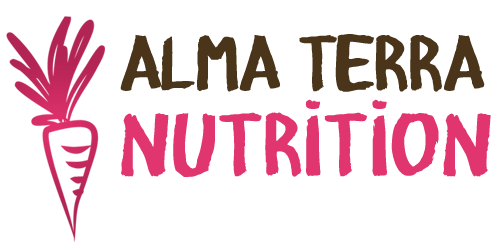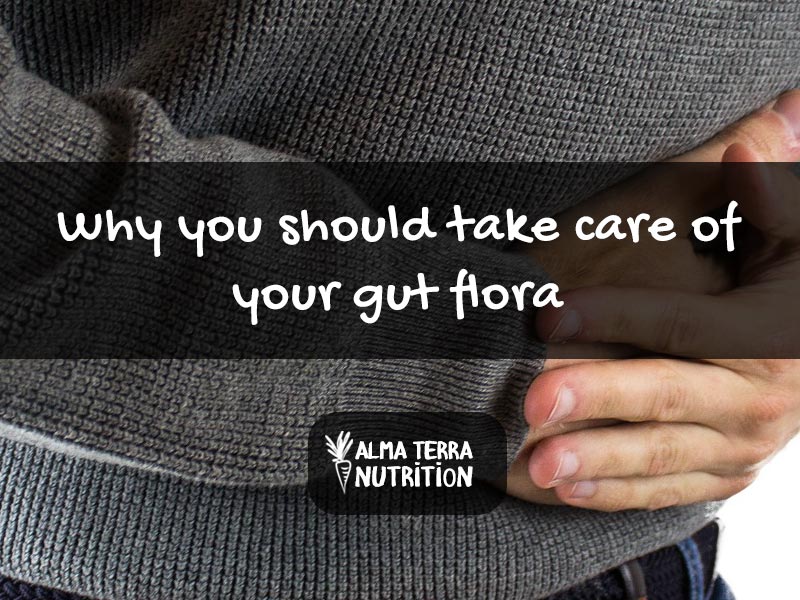Your digestive system is an awesome team of organs, spanning your mouth to colon. The term “gut” is a concise reference to your entire gastrointestinal tract. Did you know that 100 trillion microorganisms reside in your gut? Collectively, these microbes are called “gut flora” and “gut microbiota.” Here’s why caring for your gut flora is vital to your health.
Your second brain
Are you familiar with the phrase “gut instinct”? It describes intuition, an innate knowing without the need for reasoning. Your digestive system is so intelligent that scientists call it the “second brain.” Approximately 200 million nerve cells line the length of your gut!
These “neurons” communicate with your brain but also operate independently. In fact, your colon interacts with your brain via chemical messengers or “neurotransmitters.” Therefore, in some situations, you can instinctively know what to do, without any self-doubt or confusion.
Friendly flora
Your microbiota consists of benevolent and harmful bacteria. The good flora keep bad species from overpopulating. Your friendly bacteria or “probiotics” also bestow other health benefits:
1. Digestive Comfort
Beneficial flora help you break down food and assimilate its nutrients. By producing enzymes, peroxides, and fatty acids, good bacteria support digestive health.
Probiotics are especially therapeutic for irritable bowel syndrome (IBS). This intestinal disorder is characterized by inflammation, bacterial overgrowth, gas, bloating, cramping, and varying bouts of diarrhea and constipation.
Friendly microbes relieve IBS by curbing detrimental germs. They strengthen the intestinal lining, keeping pathogens from entering the bloodstream. Good flora expedite the transit of food through the colon, averting gas and constipation. Lactobacillus acidophilus is one strain that reduces pain and cramping.
2. Weight Loss
Probiotics spur the release of leptin, a chemical that decreases hunger and signals satiety from food. Good flora increase GLP-1, a hormone that helps you burn fat and calories. They normalize insulin function, improving the use of glucose for energy. Good microbes also quell the brain inflammation linked to obesity.
Lactobacillus bacteria inhibit fat absorption. A 2014 Canadian study cited by the British Journal of Nutrition evaluated the effect of probiotic supplements on weight loss. Dieting women who took probiotics for 12 weeks trimmed more pounds than dieters on placebo.
Microbes that facilitate weight loss are L. rhamnosus, L. gasseri, and L. plantarum, especially in women.
3. Cardiovascular Protection
Beneficial flora prevent hypertension by releasing short-chain amino and fatty acids. They increase absorption of calcium, a mineral that regulates blood pressure.
Gut inflammation injures arterial walls. Then, cholesterol adheres to them, causing the vessel hardening that leads to heart attacks. However, probiotics such as L. reuteri lower cholesterol.
4. Immune Strength
Did you know that up to 80% of your immune cells live in your gut? Among them are various types of white blood cells, destroying pathogens by engulfing them. Probiotics also increase antibody production.
Friendly gut flora confer with immune cells and aid their maturation. In this way, probiotics shield you from infectious viruses and bacteria. Strains that support immune function are Bifidobacterium lactis, B. bifidum, B. longum, L. casei, L. reuteri, L. rhamnosus, and L. gasseri.
While probiotics help prevent cold and flu, they also shorten the duration and severity of symptoms. A 2011 study cited by the European Journal of Nutrition revealed the benefit of probiotics for treating colds. Of 272 subjects, those who took probiotics had a 55% lower risk of infection versus 67% in the placebo group. Ingesting probiotics also cut sick time by two days.
5. Skin Integrity
Harmful gut bacteria excrete toxins. Fortunately, we have organs that eliminate them, including the liver, colon, and kidneys. However, when they’re unable to manage toxic overload, the skin gets involved. Then, impurities are expelled in the form of acne, eczema, rosacea, psoriasis, and dermatitis.
Good gut flora reduce skin irritation by suppressing bad bacteria. By fortifying the gut lining, they keep toxins from entering the bloodstream. By promoting digestion, they prevent waste from stagnating in the colon, where noxious bacteria feed on it. Probiotics help skin cells receive the nutrition they need to reproduce and grow. They also ease the liver’s job of detoxification.
Finnish scientists found that pregnant women who ingest L. rhamnosus lower the risk of eczema in their babies. Studies conducted in Italy, Korea, and Russia show that acne can improve with the help of L. acidophilus and B. bifidum. Often, people with psoriasis find that probiotic intake reduces flare-ups.
6. Emotional Equilibrium
Good bacteria foster optimism, ease anxiety, and counter depression. In their positive mental health role, friendly microbes are called “psychobiotics.”
Certain gut bacteria produce neurotransmitters that optimize brain function and related behaviors. These essential chemicals include GABA, dopamine, and serotonin.
Psychobiotics also curb the stress hormone cortisol. They calm the brain inflammation underlying negative moods. They boost cognitive function, enhancing your capacity to think. Good flora also raise self-esteem, promote contentment, confer serenity, and aid sleep.
Bacteria that uphold mental health are L. acidophilus, L. casei, B. bifidum, B. longum, B. breve, L. helveticus, and L. plantarum.
7. Heavy Metal Protection
Cultured yogurt shields pregnant women and unborn children from heavy metal poisoning. This was the finding of a 2014 Canadian study published in mBio. Probiotics were seen to slash mercury and arsenic uptake.
Fish are common sources of metallic toxins, linked to delayed child development. L. rhamnosus GR-1 is the probiotic strain that binds to heavy metals. Of note is that expectant mothers with friendly gut bacteria transfer the microbes to their infants during birth.
8. Bladder and Vaginal Health
When harmful bacteria and yeasts aren’t controlled, women are vulnerable to infections and diseases of the bladder and vagina. However, Lactobacillus strains secrete hydrogen peroxide and lactic acid, disabling infectious microbes.
Also, with strengthened immunity, women can fend off yeast infections, bacterial vaginosis, and urinary tract infections. Special credit goes to L. Crispatus, L. rhamnosus, L. acidophilus, L. reuteri, L. plantarum, and L. salvarius.
Gut disruption
Good flora thrive in a healthy digestive tract, but they’re easily killed by antibiotics, infections, alcohol, stress, and poor diet. When harmful bacteria predominate, we’re more susceptible to digestive disorders, cardiovascular pathology, skin diseases, fatigue, infections, negative moods, and weight gain.
Restoring balance
Your diet has a significant impact on probiotic viability. Here’s how to tip the bacterial scales in your favor.
1. Eat fermented foods
Cultured foods undergo “lacto-fermentation,” inoculation with Lactobacillus strains. These bacteria convert the natural sugars in foods to lactic acid, a natural preservative and antibiotic. Lactic acid is what makes cultured foods taste delightfully tangy! Additionally, it protects the vitamins and enzymes in foods and improves digestibility.
Eat two to three servings of fermented foods daily. Options are kimchi, kombucha tea, fruit and milk kefir, cultured cow and sheep yogurt, sourdough bread, olives, and unpasteurized sauerkraut.

2. Take a probiotic supplement
Supplementation ensures ingestion of bacterial strains for a specific health concern. Buy a brand with at least these five strains – L. rhamnosus, B. bifidum, B. longum, L. plantarum, and L. acidophilus. Each dose should deliver between 20 and 50 billion colony forming units (CFUs), guaranteed live throughout shelf life, to the time of expiration.
Also, choose a product with delayed rupture technology, enabling the bacteria to withstand stomach acid. Look for supplements that are either coated, encapsulated, or time-released.
Ideally, take a probiotic supplement in the morning, at least 15 minutes before eating solid food. An empty stomach expedites pill arrival in your intestine, where the flora need to colonize.
3. Increase dietary fiber
Harmful gut bacteria feed on sugar while friendly flora consume fiber. If your diet lacks sufficient roughage, bad microbes will predominate. To nourish your good flora, vary your fiber sources, emphasizing fresh vegetables and fruits. This type of fermentable roughage is called “prebiotic fiber.” It supplies good microbes with enzymes, energy, vitamins, and short-chain fatty acids.
Prime sources of prebiotic roughage are asparagus, bananas, Jerusalem artichokes, garlic, onions, leeks, endive, apples, and grapes. Additionally, favor whole grains and legumes, such as lentils, peas, and beans.
4. Avoid processed fare
Phase out your consumption of refined sugar, white flour, saturated fat, hydrogenated oils, artificial sweeteners, and alcohol. These substances discourage friendly flora from populating. Pesticides are lethal for probiotics, so try to eat organic foods whenever available. Also, consume healthy oils in moderation, such as extra virgin olive or coconut oils.
Gut health
Support your second brain and good flora with probiotics and prebiotics. Doing so will increase your chances of digestive comfort, cardiovascular health, immune strength, clear skin, emotional equilibrium, and toxic metal protection. Probiotics and prebiotics should be part of any weight loss plan. If you’re a woman reading this, you’ll be less prone to bladder and vaginal infections and disease.
Additionally, avoid the causes of probiotic demise, including antibiotic overuse, stress, and foods that are processed, sugary, high in unhealthy fat, and treated with pesticides.
Admittedly, all this information is a lot to digest. However, I make it easy to apply the principles of healthy eating. Contact me for a customized probiotic diet that’s both nutritious and delicious!
Josephine Beck
Certified Holistic Nutritionist




